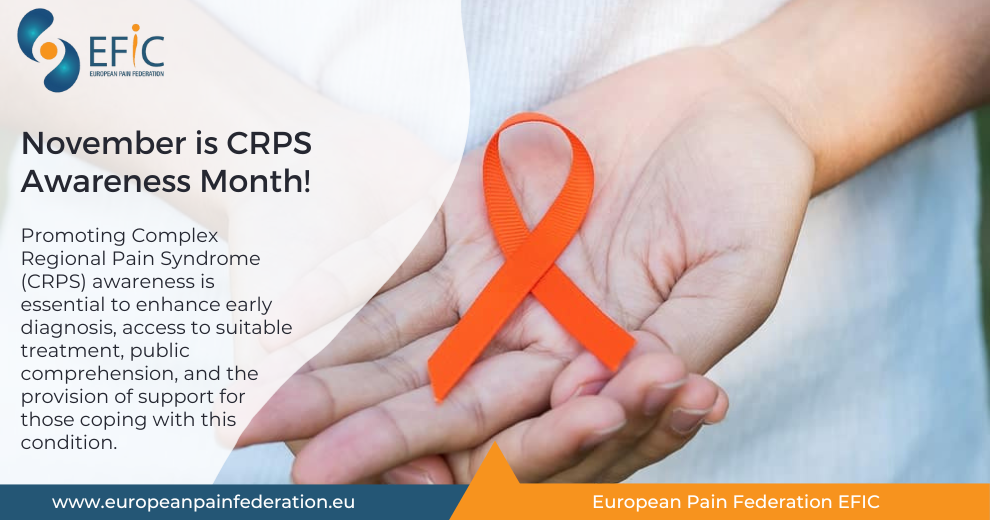About Complex Regional Pain Syndrome Awareness month
Since 2014, the month of November is recognised as Colour the World Orange™ for complex regional pain syndrome (CRPS) awareness. CRPS is a painful and debilitating post-traumatic primary pain disorder. Clinical presentations vary enormously between patients, and a diagnosis is made using the Budapest criteria (Figure 1).

Figure 1: Budapest criteria. Taken from Goebel, A, Barker, C, Birklein, F, et al. Standards for the diagnosis and management of complex regional pain syndrome: Results of a European Pain Federation task force. Eur J Pain. 2019; 23: 641– 651. https://doi.org/10.1002/ejp.1362
Raising awareness for CRPS is crucial to improve early diagnosis, access to appropriate treatment, public understanding, and support for individuals living with this condition. It can ultimately lead to a better quality of life for those affected by CRPS and promote research into more effective treatments.
The European Pain Federation have several resources to help assess and manage CRPS:
- The European Pain Federation convened a CRPS Task Force to support the development of best care for these patients through Europe. This produced 17 standards for the diagnosis and management of CRPS for use in Europe.
- The EFIC Academy Education Platform includes extensive content on the assessment and management for CRPS for physicians, physiotherapists, nurses, and psychologists. Learners will be able to pursue self-directed learning or follow specific tracks relevant to needs. Access is limited to Academy members only.
- The European Pain Federation EFIC created CRPS Assist, a web-based application for physiotherapists. The website aims to help in diagnosing and treating patients with Complex regional pain syndrome.
- The European Journal of Pain and other journals have published several interesting studies on CRPS in the past. These include:
Early versus persistent Complex Regional Pain Syndrome: Is there a difference in patient reported outcomes following rehabilitation?Molecular and clinical markers of pain relief in complex regional pain syndrome: an observational study.Pain‐autonomic measures reveal nociceptive sensitization in complex regional pain syndrome.
Others
A brief review of complex regional pain syndrome and current management.
Different types of pain in complex regional pain syndrome require a personalized treatment strategy.
